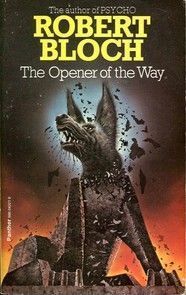What do you think?
Rate this book


176 pages, Paperback
First published January 1, 1945
En literatura, he caminado con Poe por senderos ocultos, me he arrastrado con Machen entre las sombras, he cruzado con Baudelaire las regiones de las hórridas estrellas, o me he sumergido en las profundidades de la Tierra, guiado por los relatos de la antigua ciencia. Mi escaso talento para el dibujo me obligó a intentar describir con torpes palabras los seres fantásticos que moraban en mis sueños tenebrosos. Esta misma inclinación por lo siniestro, se manifestaba también en mis preferencias musicales. Mis composiciones favoritas eran la Suite de los planetas y otras del mismo género. Mi vida interior se convirtió muy pronto en un perpetuo festín de horrores fantásticos, refinadamente crueles.